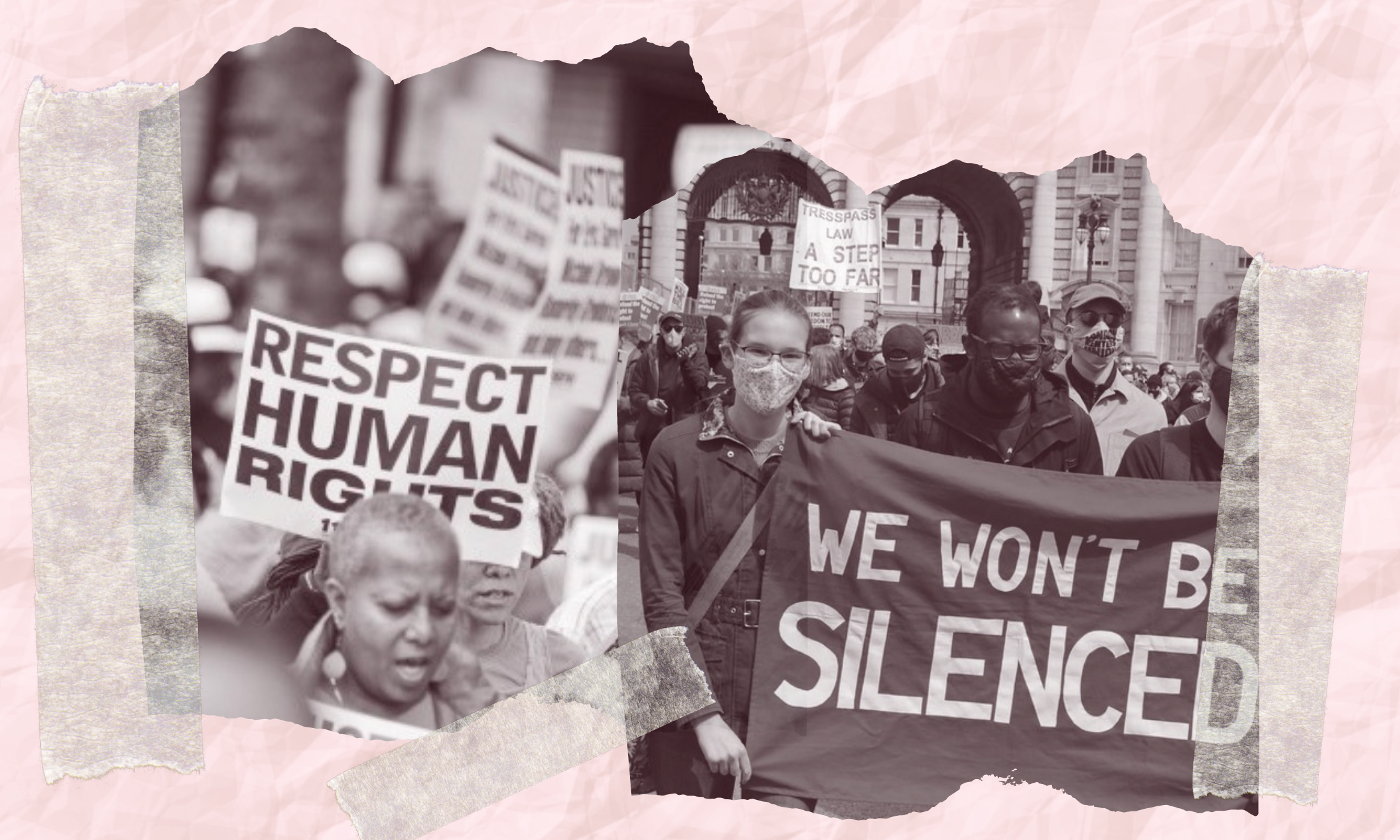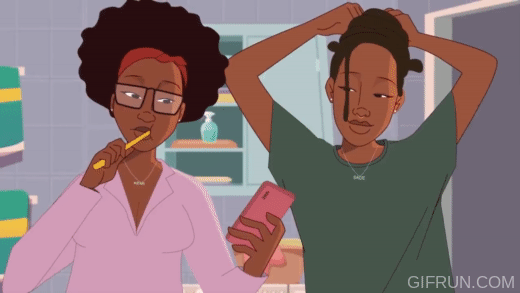
Canva/Flickr
This month the government officially announced they will be scrapping the Human Rights Act (HRA) and replacing it with a watered down ‘Bill of Rights’. This move is a power grab that will make it harder for all of us to hold the state to account, and, as with a lot of recent government policies, will hit marginalised communities the hardest.
For over 20 years, the HRA has acted as a vital safeguard outlining the fundamental rights and freedoms everyone in the UK is entitled to.
As it stands, the HRA protects our right to protest, guards us from intrusive state surveillance, and ensures that disabled people can access appropriate support to live dignified lives. Just recently, it guaranteed that families were able to visit their loved ones in care homes during the coronavirus pandemic, and also enabled members of the Windrush generation to fight for justice after being mistreated by the Home Office.
It provides a key way of challenging the state when there’s been an injustice – survivors of domestic abuse and sexual violence have too relied on the HRA to secure accountability for police failures to investigate perpetrators.
“It has long been one of Dominic Raab’s pet projects to replace the Human Rights Act”
At its core, the HRA requires public bodies to be held accountable to the law and to treat people with dignity and respect, whether it is housing authorities or health providers. With it, we can defend our rights in UK courts.
Last year, an independent panel set up by the government to review the operation of the Human Rights Act and the Joint Committee for Human Rights both said that there was no case for overhauling it. Yet it has long been one of Justice secretary Dominic Raab’s pet projects to replace the Act – he quite literally wrote a book on it – and so, in the Queen’s Speech on 10 May, a new Bill of Rights was announced.
Bringing in these sweeping changes will reduce rights for all of us, but the effects will be felt most severely by marginalised communities.
A haphazard consultation process
One of the clearest examples of this is the government’s haphazard approach to the Human Rights Act consultation. From the beginning, the government ignored its responsibility to ensure that the consultation was accessible to disabled people, only providing an easy read and audio version the day before the deadline. After significant pressure from disabled people’s organisations, the British Institute of Human Rights, and Liberty, the government eventually extended the deadline, but only by six weeks (half the amount of time given to everyone else).
The entire process demonstrated just how little the government cares for the impact of its overhaul on marginalised communities – who, because of structural oppression and inequality, may interact more frequently with public services and disproportionately experience the sharp end of state violence. For these people, the ability to challenge injustice is already limited and precarious – and for those very reasons, all the more crucial. The government should be enhancing access to justice and strengthening human rights protections, not taking rights away.
“The government should be enhancing access to justice, not taking rights away”
Throughout its consultation into reforming the Human Rights Act, and in the way it talks about human rights, the government has sought to demonise certain groups of people to try to build justification for its replacement. Migrants have been labelled ‘Foreign National Offenders’, and incarcerated people as ‘undeserving’ of rights.
This is not a new tactic for the government, which frequently scapegoats particular communities in order to provoke division and distract from its own regressive agenda. Categorising people as more or less deserving of rights based on who they are and what they have done runs counter to the idea that we all have human rights by virtue of being human. This is a slippery slope to diminishing rights for all.
An erosion of justice
Crucial to the overhaul of the HRA is the government’s plans to erode ‘positive obligations’. Positive obligations are a key part of human rights that require the state to not only refrain from doing certain things, but also to take positive measures to safeguard people’s rights. For example, the families of people who have died in state custody or as a result of failings by the state – who we know are disproportionately likely to be people of colour, especially black people – have relied on positive obligations under the right to life to seek truth and justice for their loved ones. This includes Janet Alder, sister of Christopher Alder who suffered racial abuse and was killed in state custody, and the Hillsborough families.
In addition, the government intends to further expand the deportation regime, so that more people can be deported more quickly from the UK, including to places where they may have never visited or left as children. This will tear families and communities apart, with disproportionate effects on racialised communities. The Bill of Rights’ targeting of refugees and migrants, together with the recently passed Nationality and Borders Act and the Rwanda offshoring plan, will further entrench the suffering caused by the hostile environment.
These changes will make it harder for all of us to access and uphold our rights. These are policies that are being proposed by a government that hates scrutiny and wants to shield itself from accountability. These plans will lead to untold abuses of power, and further side-line Parliament – leaving whichever party is in power to act as it pleases. Those already vulnerable to state violence will be hit hardest, losing access to the limited safeguards that currently exist.
“Powered by positive vision, we can win”
Despite it all, it is still possible to stop this overhaul. Over the last year alone, we have seen the government make countless U-turns under pressure. It could get voted down in Parliament or have the most damaging parts removed. For example, the enormous resistance to the Policing Bill – with thousands taking to the streets, signing petitions, and making their opposition heard – resulted in some of the worst aspects of the Bill being stripped out. The flourishing of CopWatches, anti-raids groups and other community organising initiatives demonstrates time and again that we have the power to keep us safe – using whatever means we have at our disposal.
In the months ahead, Liberty will be fighting alongside grassroots groups, Parliamentarians from all parties, and individuals, families and communities to save our Human Rights Act, for a future in which we might all be able to live flourishing lives, with access to the support we need to thrive and participate in the decisions that affect us. Powered by this positive vision, we can – and we will – win.
Jun Pang is a policy and campaigns officer at Liberty.
Our groundbreaking journalism relies on the crucial support of a community of gal-dem members. We would not be able to continue to hold truth to power in this industry without them, and you can support us from £5 per month – less than a weekly coffee.









